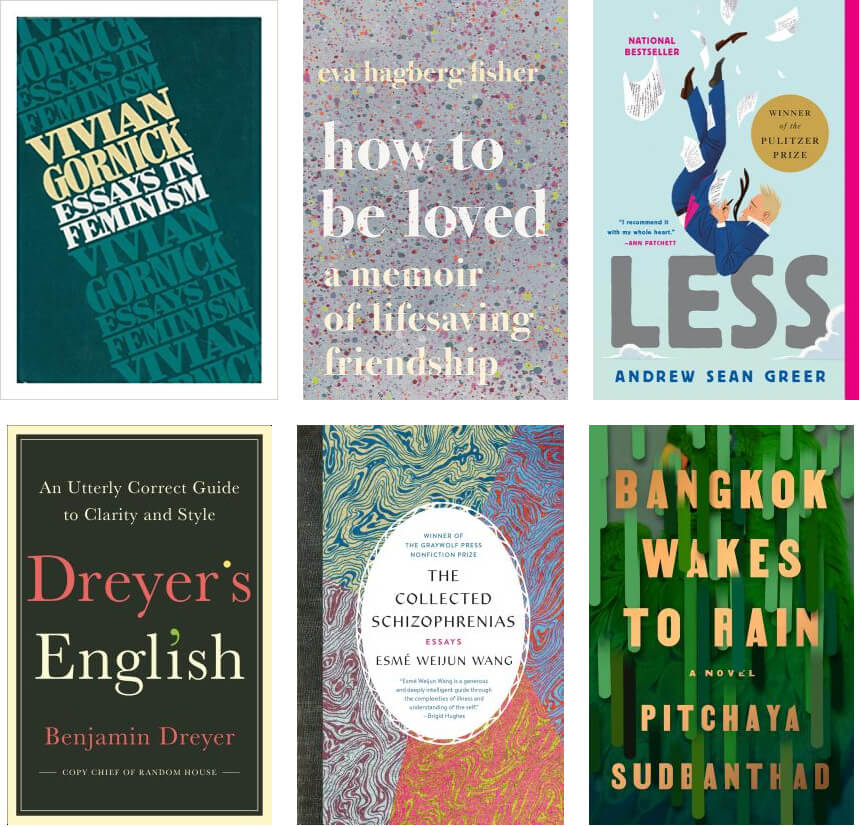Whatcha Reading, Summer Brennan?
Every week we ask an interesting figure what they're digging into. Have ideas who we should reach out to? Let it fly: info@seattlereviewofbooks.com. Want to read more? Check out the archives.

Summer Brennan is an award-winning investigative journalist, and author of 2015's The Oyster War: The True Story of a Small Farm, Big Politics, and the Future of Wilderness in America. Her second book, High Heel, part of the Object Lessons series from Bloomsbury, is being released on March 21st. On Twitter (she's a very good follow) she said it was about "feminism, femininity, sex, gender, biology, violence and mythology." Get a jump on the crowd, and pre-order it from your local indie bookshop.

What are you reading now?
Right now I'm reading two books, Essays in Feminism by Vivian Gornick (1978), and the new memoir How To Be Loved by Eva Hagberg Fisher, which was just published this week. I knew I would read anything Fisher wrote after I read her essay "How I Learned To Look Believable" in The New York Times, last January. I love that How To Be Loved is about, among other things, a friendship between women, and a friendship between women of different generations. I had a close friend who died a few years ago who was in her early 80s, and I wish these sorts of decades-spanning relationships were more common. It can be like making friends with a time traveler. And Fisher's prose is easy to read in the way that, as a writer, I know means it was probably very difficult to write. It feels like sunshine, to find a writer who has already hacked a clear path through the jungle of their ideas for you, even when the subject matter is dark. And speaking of older women as time travelers bearing gifts, I am finding Gornick's 1970s essays to be very eye-opening. We do ourselves a great disservice, particularly in modern feminist discourse, to discount or even not read at all the seminal works of the fraught but vital Second Wave period. In a forward written at the time of the book's initial publication, Gornick describes the "feminisms" of the previous decade as "lurching forward in the unshapely manner of one proceeding through uncharted territory with a compass that works only intermittently." Those who were not yet alive during this period, like myself, have so much to learn by listening to the messy, emotionally potent urgency of that time, rather than letting our thoughts fall to lazy, misogynist stereotypes that too often are left unexamined.
What did you read last?
I just bought this week, and then read in less than 24 hours, last year's Pulitzer-winning novel Less by Andrew Sean Greer. I read the excerpt that came out in The New Yorker in June 2017 called "It's A Summer Day," and was delighted, so it has been on my list for a while. I loved it. It felt light but poignant, with a bit of a narrative mystery built into the structure that I appreciated. And the book, like its protagonist, has a sense of humor about itself to a point that's even a little meta. In it, a wandering white man worrying over his problems has written an unloved book about a wandering white man worrying over his problems. It made me think also, among other things, about the current conversations around "likeable" characters. I could feel Greer's love for all of his characters, even the ones disliked by his protagonist, which gives the whole thing a tenderness and a humanity that one doesn't always find. Sort of like how a good actor can never have contempt for their own character, no matter how dastardly, in order for the character to feel true. I don't know. Am I rambling? I liked this book a lot, and I really hope that someday soon female authors can also write books like this—stories about a female protagonist, concerned with love, with prose that has a spring in it's step, style-wise—and be treated with the same seriousness as this book deservedly was.
What are you reading next?
I don't know! There are so many books lined up, for work and for pleasure. For nonfiction, this week I intend to buy Dreyer's English by Benjamin Dreyer and The Collected Schizophrenias by Esmé Weijun Wang. Novel-wise, it will definitely be Bangkok Wakes To Rain, by Pitchaya Sudbanthad.